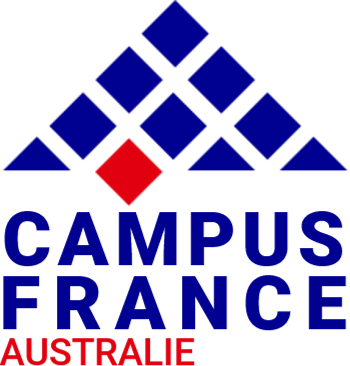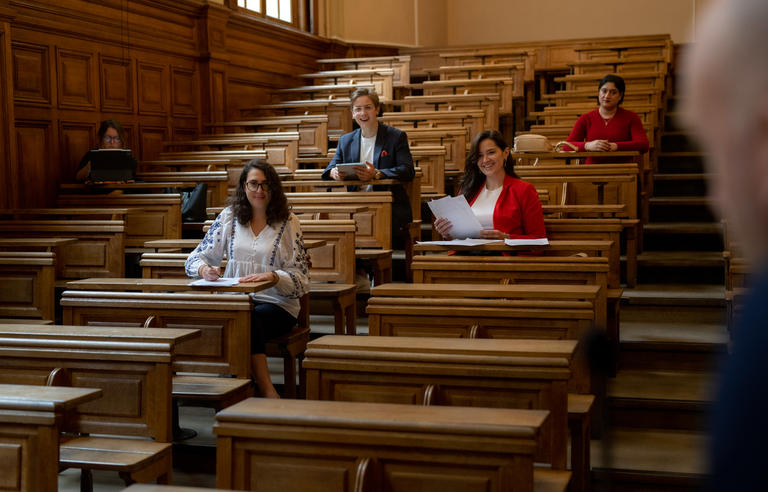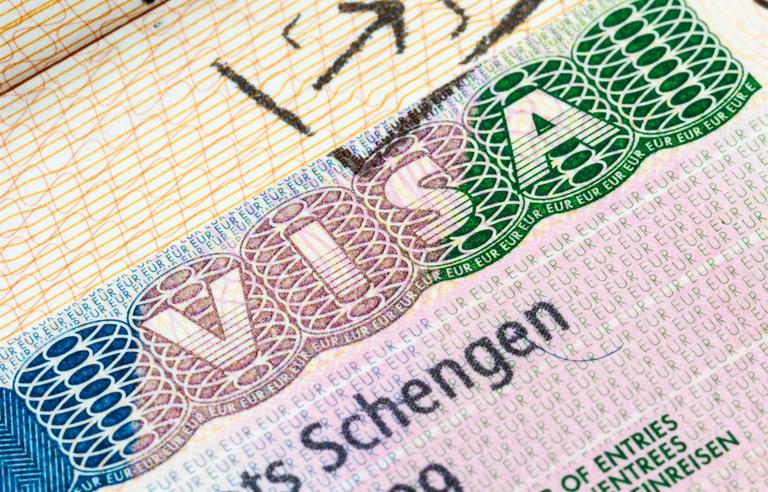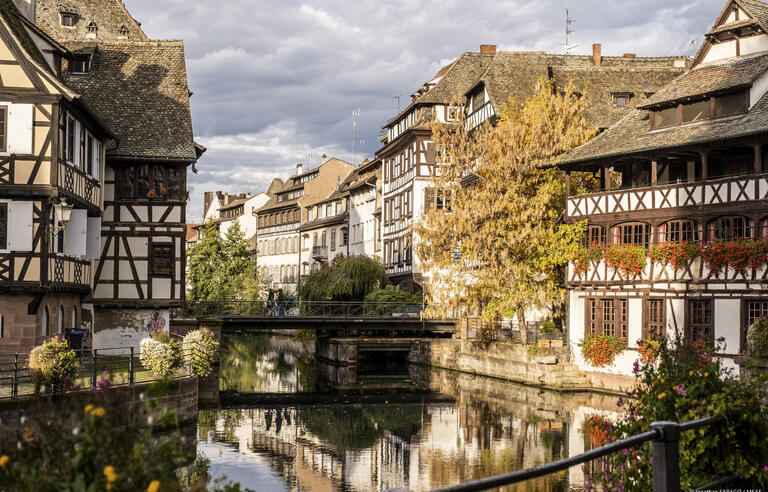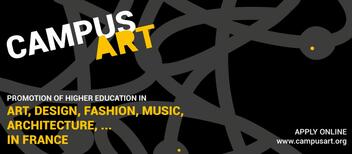In France, the range of domains you can study is very broad. Browse below to see some of the most popular domains of study in France.
A strong system of higher education
The richness and diversity of French higher education ensure that any student can find a program closely suited to his or her needs, plans, and dreams. The sole prerequisite, whether at the bachelor, master, or doctoral level, is to clearly define the goals underlying your search for a program. Doing so will allow you to choose the right curriculum and the right type of school. A close fit between your stated goals (degree level and field of study) and your prior preparation will increase your chances of admission.
To find more information about applying, consult our webpage on how to apply as an Australian student, and where to find programs.
Domains where France offers a unique study opportunity
There are some fields which France specialises in, and international students can gain an edge by studying there.
Aeronautics Aerospace
France is a leading country in the sector of aeronautics and space construction in Europe. The demand for training in aeronautics for professions such as technicians, welders and boilermakers is extremely high, so much so that the sector is having difficulty finding a qualified workforce. The French training offer encompasses all the professions in aeronautics and aerospace, with certifications at all levels: Brevet de Technicien Supérieur (advanced technician’s certificate), Licence (undergraduate), Master and post-Master, in French and in English.
Information sheet here.
Arts, Fashion, Dance
Think of Fashion or Art, think of France... France sets the international standard in the fields of art and culture, in part because the country has creative excellence in all of the arts: architecture, fashion, design, the visual and graphic arts, film, and even comic art and graphic novels. There are currently more than 700 programs, mainly run by public or private universities and tertiary schools, presented in the CampusArt Catalogue.
Information about each domain is in the links below:
- Arts and Culture
- Visual Arts
- Heritage and Museology
- Fashion
- Design
- Interior Design
- Urban Planning and Design
- Video Game Design
- Luxury Goods
- Photography
- Music
And more! Check out the Campus Art and Architecture Article for more information about applying.
Gastronomy and Hospitality
French cuisine, with its rich history and deep-rooted traditions, is considered an invaluable cultural heritage. France regards gastronomy as a precious national asset, representing the art of savoring food and the pleasure of dining.
Along with Switzerland, France has the distinction of being a top choice for international students. Its hospitality and hotel schools are among the most
prestigious in the world.
Information sheet for gastronomy here, and for hospitality here.
Agriculture and agronomy
France is the European Union’s largest agricultural producer, followed by Germany, Italy, and Spain. With over 500,000 farms, agriculture accounts for more than 1 million jobs in France. Programs in agriculture are broken down into 8 subject areas: production, processing, spatial planning and environmental protection, equipment, marketing and sales, services, equestrian activities, and animal husbandry and care.
Information sheet here.
Wine Studies
Measured in value, France is the world’s leading producer of wine, accounting for 17% of the global total; the country ranks second in terms of volume.
It owes its position to a long tradition, dating back to the expansion of the Roman Empire into Gaul. Today, enology and viticulture cover a vast array of fields, ranging from grape cultivation, winemaking and packaging to tasting, conservation, and retail consumption. Education in the wine sector is divided into three distinct branches: wine production,viticulture, and viniculture; enology with scientific and technical applications; and marketing and distribution in France and abroad.
Information sheet here.
International Fields of Study
Scientific Research studies
Biotechnology: France ranks third in Europe, behind the United Kingdom and Germany, in the number of biotechnology companies operating within its territory. These 400 firms employ about 6,000 people, more than half of whom work in research and development. Biotechnologies are increasingly important in the health sector, but they have a growing role in several other sectors as well-among them the environment, agriculture, and food processing. The energy, materials, and chemical sectors are also influenced by advances in biotechnology.
Chemistry: With chemistry being so embedded in so many economic sectors, French universities and engineering
schools offer a wide array of chemistry degrees. A high level of specialization is available at the master level with
training available in research and development.
Climate studies: Climatology deals with climate and the statistical analysis of its various components. Climate is defined as “the typical succession of atmospheric conditions above a given location.” Climatology is the science that provides a systematic description and explanation of the world’s climate zones. Students can also study renewable energy, and water management.
Maritime Sciences: Programs in the sea sciences are available at all academic levels and lead to some 50 qualifications.Two or three years of study are required for technical programs such as the BTS (postsecondary technical certificate), the Licence (Bachelor), and the Licence professionnelle (vocational Bachelor’s degree).
Mathematics: France remains one of the “great powers” in mathematics alongside the United States, Russia, and Great Britain. Its international influence can be measured in terms of the high-level recognition (Fields medals, Wolf prizes, Crafoord prizes, etc.) that its mathematicians receive and by the frequency with which they are invited to lecture. One of the world's top universities, Paris-Saclay, is renowned for mathematics.
Nanosciences: With more than 5,300 researchers and 240 laboratories working in the nanosciences and nanotechnologies, French institutions are engaged in a great many nano-research projects. France is one of the leaders in basic research in the nanosciences. The country ranks second in Europe, after Germany, in the amount invested in nanoscience research, and fifth in the world in number of publications in the field.
Physics: Since the time of René Descartes (1596-1650), Blaise Pascal (1623-1662), André Ampère (1775-1836) and Sadi Carnot (1796-1832), physics,
like mathematics, has been one of France’s areas of research excellence, as evidenced by the 14 Nobel prizes awarded to illustrious French physicists. Researchers specialize in theoretical physics or in experimental physics.
For those interested in science, French + Sciences is a summer course hosted in France, where students can learn French and a scientific discipline among a few choices. The Embassy sponsors the place of a few students each year.
There are many internships in France in various scientific fields offered every year under the Nicolas Baudin Internships in France Grant Initiative.
Engineering
With its long tradition of excellence in training and research, French engineering evokes the great builders – Philibert le Roy and the Palace of Versailles, Sébastien Vauban and military fortifications, Ferdinand de Lesseps and the Suez canal, Gustave Eiffel and his grand metal structures (including the tower bearing his name), or Auguste Bartholdi and the Statue of Liberty. These inventors and builders have shaped the image of
France.
Trained in France’s renowned Écoles d’Ingénieurs (engineering schools), French engineers work in all fields of engineering. They are sought out by firms in France and abroad. More and more programs are taught in English, proficiency in which is assessed prior to graduation.
Information sheet here.
Business Studies
Best known as IAEs, France’s 37 institutes of business administration are university-based schools of management. Located throughout France, they offer 80 different programs at the bachelor and master level. Taught in French, English, or a combination of the two, programs range from the general to the very specialized.
Information sheet here.
Medicine and Allied Health Professions
There are more than 1.4 million allied health professionals in France working in about twenty professions. Allied health training opens to various professions and allows one to easily travel abroad. Médecins Sans Frontières, the Red Cross, Handicap International and Médecins du Monde are among the many French NGOs that need the help of allied health professionals on all continents.
Medical education in France is organized into 3 stages of 3 or more years and offered at universities associated with one of the country’s 32 regional university hospital centers, known as CHRUs.
Information sheet here.
Architecture
Architecture is taught throughout France by a network of 20 Écoles Nationales Supérieures d’Architecture (ENSAs, national higher schools of architecture) and two other institutions that confer degrees recognized as equivalent to the national diplomas awarded by the ENSAs. Numerous international networks and cooperative agreements are active in the areas of architectural education, student mobility, and professional exchange.
Information sheet here.
Legal Studies
Studying law in France affords many international students an opportunity to examine the roots of their home country’s legal system. The universities are the centre of legal education in France. Integrated with the European degree system, training is divided into 3, 5, and 8 year segments. A 1- or 2-year master’s degree (level M1 or M2) is required to enter the professional schools that prepare students for careers in law.
Information sheet here.
Sports and Athletics
France holds third place in the Global Cup rankings of Greatest Sporting Nation (2021), a distinction awarded each year based on the results of international competitions in 77 sports. At the Olympic Games in Rio, France took 42 medals. It won 33 in the Tokyo Games and 54 at the Paralympics. In 2024, Paris will
host the Olympic (July 26 - August 11) and Paralympic (August 28 - September 8) Games. “Youth and Sports” degree programs and university certification programs prepare students for sports-related occupations at all levels.
Information sheet here.
Campus France helps you
Related contents
Recommended items



